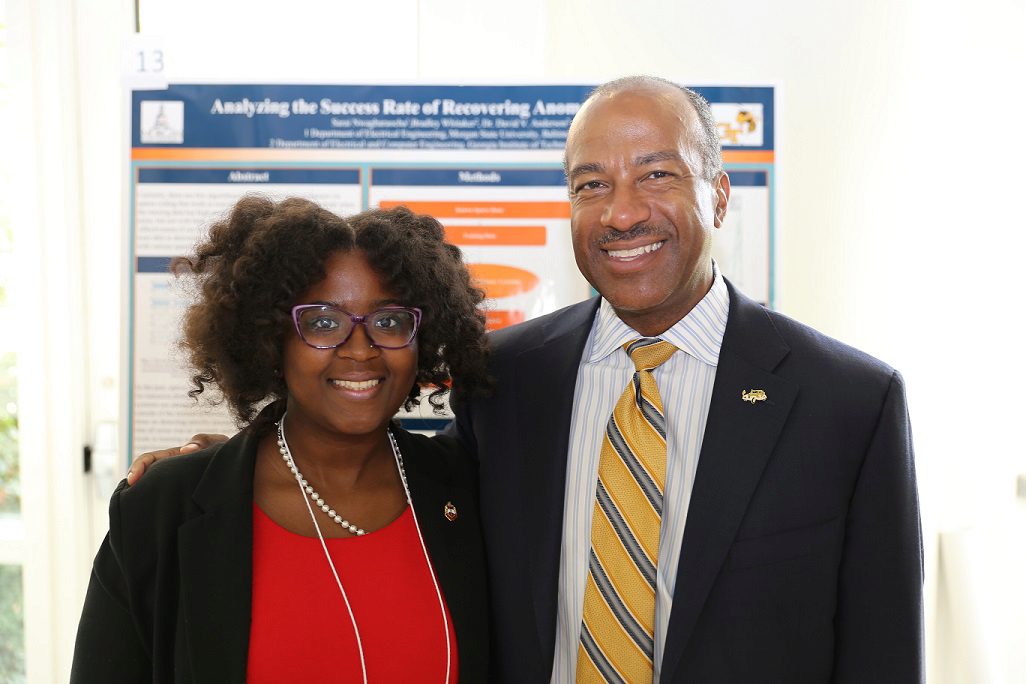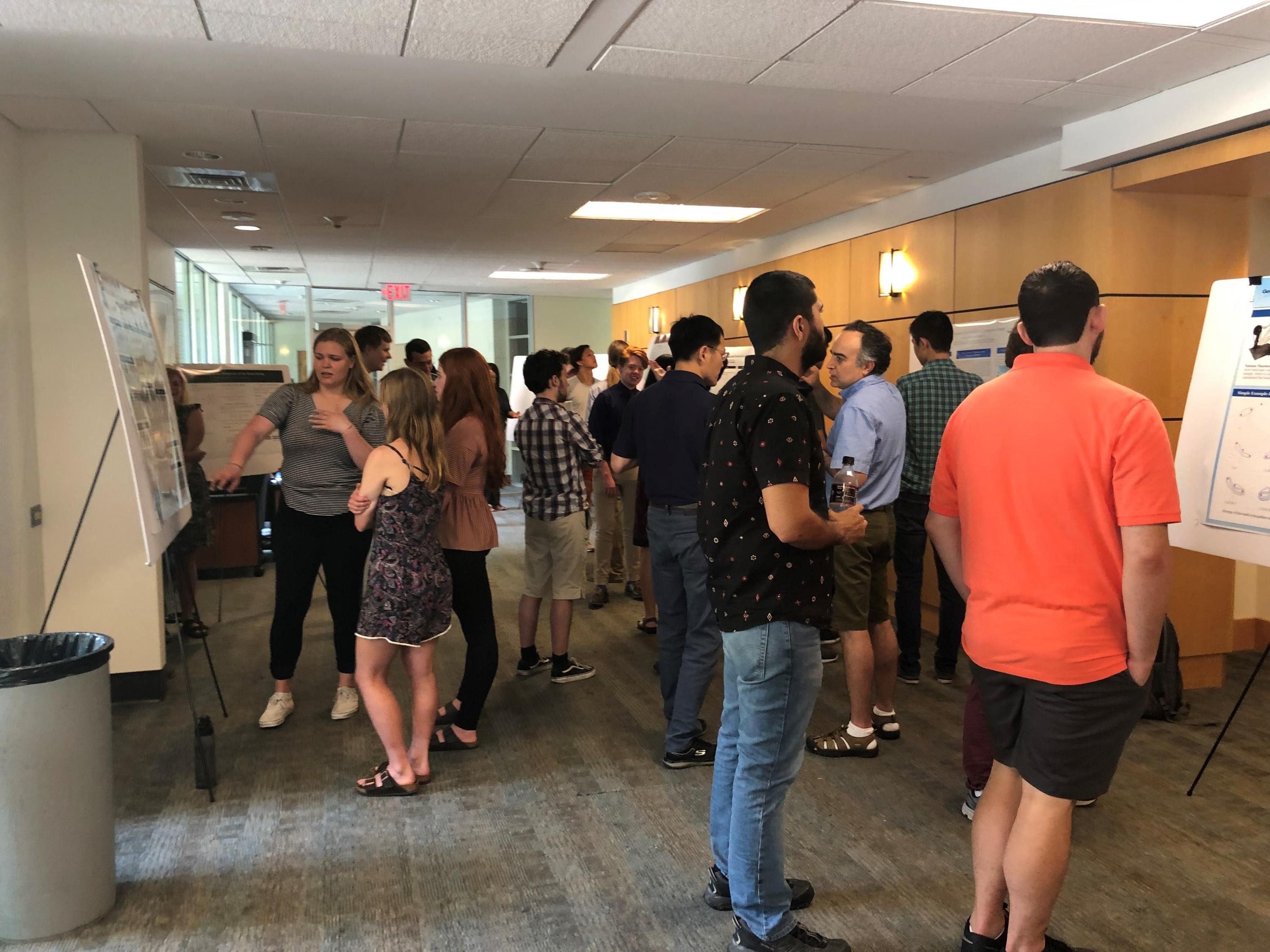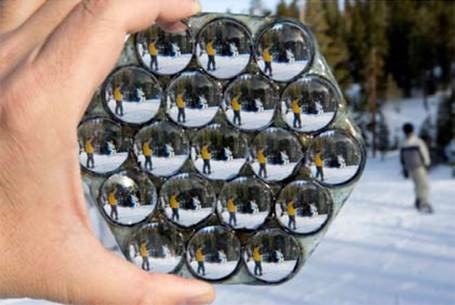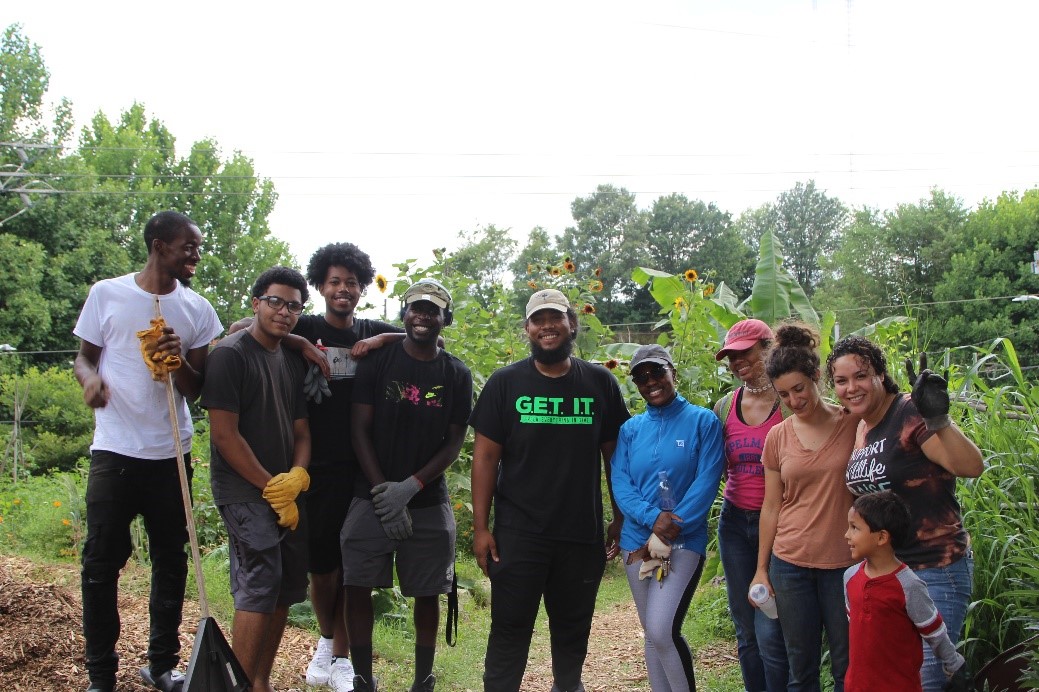
Feb 08, 2021 - Atlanta, GA
On and off Georgia Tech’s campus, there are countless opportunities for undergraduate students to gain practical skills, connections with industry leaders, and hands-on experience through research and internship opportunities.
Below is a non-comprehensive list of available opportunities, along with advice for how to find out about other opportunities.
Serve-Learn-Sustain Internships
SLS seeks to provide its partners with support and resources, while providing its students with practical experience in supporting solutions for sustainable communities. The SLS internship program is offered every summer and is an opportunity for students looking to gain real-world experience related to sustainability and community engagement. Summer interns will earn internship course audit credit, and can choose between a part-time (15-20 hours per week) or full-time (30-40 hours per week) internship. The SLS Summer Internship Program is a 12-week program (mid-May to mid-August). Students interested in a part-time internship for the fall or spring semesters can contact SLS and SLS will work with them to identify partners who may be interested in hosting an intern during the school year.
This semester, internships include partnerships with the City of Savannah working on the Sea Level Sensor Project, Make Homeless Meals More Nutritious with Food4Lives, and Tracking and Reporting Georgia Tech's Scope 3 Emissions with the Georgia Tech Office of Campus Sustainability. Read about all the internship opportunities here, and apply for an internship here.
Global Change Program
The Global Change Program provides an avenue for Georgia Tech faculty, staff, and students to design and implement solutions to climate and global change challenges. Georgia Tech has extensive research expertise in climate science, energy policy, energy technology, and sustainable business, which support a host of activities in the classroom, across the state, and beyond. We aim to build new partnerships across Georgia Tech and with outside partners, both private and public, through innovation and the translation of research into practice.
Research partnerships include Smart Sea Level Sensors, Drawdown Georgia and GT Air Travel Emissions. Learn more about research opportunities here.
To stay connected with the Global Change Program and learn about upcoming opportunities, join their mailing list.
Vertically Integrated Projects
In VIP, teams of undergraduate students – from various years, disciplines and backgrounds – work with faculty and graduate students in their areas of scholarship and exploration. Undergraduate students earn academic credit for their work and have direct experience with the innovation process, while faculty and graduate students benefit from the extended efforts of their teams.
Teams are open to students of all undergraduate majors, with the opportunity to work on projects related to the mechanical and physical properties of soils, rocks and ceramics; studying and developing solutions for care regimens for diabetics; and addressing health outcomes, nutrition, and general living conditions in developing nations.
View a list of all teams here.
To learn more, contact vip@gatech.edu or visit vip.gatech.edu.
Undergraduate Research Ambassadors
Last month, the Undergraduate Research Ambassadors hosted an open house to answer any research-related questions. URA can help with anything from finding a position in a lab to printing a poster to communicating with your research mentor.
To get connected with the Undergraduate Research Ambassadors and learn more about 2021 opportunities, visit their website here.
Georgia Tech Research Institute Research Internships
Through the 10-week Summer GTRI Research Internship Program (GRIP), students put effective, practical solutions into action. You'll have the opportunity to work with mentors and other students on tough problems facing government and industry across our nation and around the globe. Projects for College of Sciences students include “Secure key distribution in free space optics,” “Celestial PNT from Wide Field Imaging,” and “Fabrication and test of graphene batteries."
The deadline to apply for summer 2021 GRIP internships was February 1, but you can learn more about the projects and the application process for future rounds here.
International Research Experience for Students (IRES) in Lyon, France
Chemistry and biochemistry majors are invited to apply for an 8.5-week summer research experience hosted by Georgia Tech and Ecole Superieure de Chimie Physique Electronique (CPE) in Lyon, France. Tentative dates for the program are Monday, May 17-Thursday, July 15, 2021.
Project areas include design and synthesis of functional molecular architectures for optimized molecular regulation, metal free selective oxidation of sulfides, and preparation of double emulsions.
Read about the project areas and apply here.
Women, Science, and Technology
The Center for the Study of Women, Science and Technology (WST) continues its program to support and to fund partnerships of undergraduates with faculty in research on women, science, and technology.
Contact Dr. Mary Frank Fox for more information or visit the Women, Science, and Technology website.
CSURP – Chemistry Summer Undergraduate Research Program
CSURP is a program for undergraduate students who are majoring in chemistry or chemical engineering and are interested in conducting supervised summer research. The program is supported by the NSF Center for Selective C-H Functionalization (CCHF).
Undergraduate Student Opportunities at ORNL | Science Education Programs at ORNL
Are you ready for a science, technology, engineering or math (STEM) research experience with Oak Ridge National Laboratory’s prestigious scientists and engineers? Are you looking for an internship opportunity with a research or technical focus? If you are an undergraduate student at a college or university, with an interest in STEM, ORNL may be the place for you!
Summer Undergraduate Research in Engineering/Sciences
Founded in 1992 by Gary May, a former Dean of the Georgia Tech College of Engineering, the Summer Undergraduate Research in Engineering/Sciences (S.U.R.E.) program is committed to increasing the number of qualified students who are traditionally under-represented in STEM fields. These include but are not limited to students from racial/ethnic minority groups, women, or first generation college students.
SURE Program in Robotics
SURE Robotics is a ten-week summer research program designed to attract qualified, underrepresented, and minority students into graduate school in the fields of engineering, computer science, or physics.
NNCI Research Experience for Undergraduates
Research Experience for Undergraduates (REU) programs are an excellent way for undergraduates to become acquainted with scientific research and graduate student life. REU programs typically consist of an intensive 10-week summer research experience at a university different than your own. Most research centers sponsor REU-like programs as part of their education and outreach efforts.
Clean Energy Bridge to Research Experience for Undergraduates
Clean Energy Bridge to Research (CEBR) is a summer program run by the University of Washington (UW) Clean Energy Institute (CEI) and Undergraduate Research Program, and funded by the National Science Foundation (NSF 1559787). The CEBR Research Experience for Undergraduates (REU) program supports a select group of undergraduates, community college students, and tribal college students to participate in authentic research in solar, energy storage, and grid technologies under the mentorship of UW’s world-class faculty and grad students. Participants embark on a nine-week immersive research project in a single UW clean energy research lab, and produce an abstract and poster summarizing their work. All students that are accepted into the program are supported financially with competitive stipends. Housing, food allowance, and up to $500 in travel allowances are provided.
NSF Research Experiences for Undergraduates (REUs)
The NSF REU (Research Experience for Undergraduates) program is designed to provide meaningful research experiences to undergraduates who may not otherwise have the opportunity, with an ultimate goal of increasing matriculation in STEM careers and graduate school.
Most NSF REU programs are designed to pair students attending smaller and undergraduate-only schools with faculty and lab groups at larger host institutions for mentorship and a meaningful research experience.
Importantly, as NSF notes, the inclusion of historically under-represented groups in STEM (minorities, low socio-economic status, first generation students, veterans and women) will serve to broaden the STEM talent pool.
As such, most REU programs in the College of Sciences at Georgia Tech host a diverse cohort of approximately ten non-Georgia Tech undergraduates, who have limited research opportunities at their current institution. Each unique program's focus and requirements vary, so check individual program links for application guidelines and deadlines.
REU: Aquatic Chemical Ecology at Georgia Tech
Open to non-Georgia Tech undergraduate students only.
Aquatic Chemical Ecology (ACE) at Georgia Tech is a summer research program supported by the National Science Foundation REU (Research Experience for Undergraduates) program. ACE at Georgia Tech gives you the opportunity to perform exciting research with our faculty in the schools of Biological Sciences, Earth & Atmospheric Sciences, Chemistry & Biochemistry, Civil & Environmental Engineering, and Chemical & Biomolecular Engineering. You'll participate in research with one or more of our faculty, learn about careers in science and engineering, and see how scientists blend knowledge and skills from physics, chemistry and biology to investigate some of the most challenging problems in environmental sciences.
Research Experiences for Undergraduates at Georgia Tech: Chemistry
Open to non-Georgia Tech undergraduate students only.
Chemistry and Biochemistry undergraduate majors who are US citizens or Permanent Residents (from Colleges and Universities outside of Georgia Tech) are invited to apply for a ten-week (Sunday, May 17- Friday, July 24, 2020) research program. Program participants will receive a stipend of $5,000, a travel allowance, and housing. Participants supported must be US citizens or permanent residents of the US. Funding is pending support provided by the National Science Found and 3M Corporation.
REU students carry out a research project under the direction of a faculty member in School of Chemistry and Biochemistry at Georgia Tech. Projects are available in analytical, biological, inorganic, organic, physical, and polymer chemistry with a number of projects involving interdisciplinary research perspectives. Contributions by undergraduate participants often result in publication of papers in the peer-reviewed literature with the student listed as an author. In addition to full time research, students participate in a number of professional development seminars, site visits to scientific companies/government labs, and social activities with fellow students and other REU groups on the Georgia Tech campus.
Interested in Summer Undergraduate Research in EAS? | EAS Research Experience for Undergraduates (REU)
Strong priority for non-Georgia Tech undergraduate students.
Undergraduates are invited to apply for a ten-week research program hosted by Georgia Tech School of Earth and Atmospheric Sciences (EAS) during Summer 2021.
Working under the supervision of an EAS faculty member, participants will focus on a single research project but also gain a broad perspective on research in earth and atmospheric sciences by participating in the dynamic research environment. This interdisciplinary REU program has projects ranging from planetary science to meteorology to oceanography. In addition to full time research, undergraduate researchers will participate in a number of professional development seminars, research horizon lunches, and social activities with other summer REU students.
Research Experiences for Undergraduates at Georgia Tech: Mathematics
Open to all undergraduate students.
The School of Mathematics at Georgia Tech has a rich tradition for undergraduate research. The projects have been mentored by many different faculty, on topics ranging from fad formation, to random walks, tropical geometry, one bit sensing, extremal graph theory, and convex polyhedra. Our students have published many papers, have won a number of awards, and have been very successful in their graduate school applications.
Find more details on the FAQ page, and apply here.
The Atlanta University Center/Georgia Tech Broadening Participation REU Program in Physics
See program webpage for eligibility requirements.
Physics majors are invited to apply for a ten-week (Sunday, May 16 - Friday, July 23, 2021) research program hosted by Georgia Tech School of Physics.
Working under the supervision of a physics faculty member, participants will focus on a single research project but also gain a broad perspective on research in physics by participating in the dynamic research environment. Available projects span the field of physics ranging from condensed matter and atomic physics to astrophysics and biophysics. In addition to full time research, undergraduate researchers will participate in a number of professional development seminars, research horizon lunches, and social activities with other summer REU students.
(Non-GT CoS REU) Research Experience for Undergraduates (REU) | Center for Bio-mediated and Bio-inspired Geotechnics
The REU program at CBBG allows students from across the nation to visit, learn, and experience world-class bio-geotechnical engineering. Each student is given the opportunity to work closely with the Center faculty and other Center researchers. Students are granted stipends and assistance with housing and travel.
Interested in finding other research opportunities?
- Looking to stay updated with the latest research opportunities? Join the Undergraduate Research Opportunities Programming Mailing List - Georgia Institute of Tech : Sign Up to Stay in Touch (constantcontact.com)
- Read the Undergraduate Research Opportunities Program’s 10 Steps to Get Involved in Research.
- Conduct external research: students participating in research away from Georgia Tech may be eligible to have the experience listed on their official Georgia Tech transcript.
- Find opportunities at Georgia Tech: Georgia Tech undergraduate students have many opportunities to participate in research with faculty across campus.
- Research Internationally: Study abroad, international internships, and international research are all available for undergraduate students.
- Summer Research: Read a non-exhaustive list of summer research opportunities suggested by the Undergraduate Research Opportunities Program.
- Learn more on the website of the Undergraduate Research Opportunities Program.
- Find additional Internship, Summer Research, and Study Abroad Opportunities for Georgia Tech Science and Math Undergraduates.


